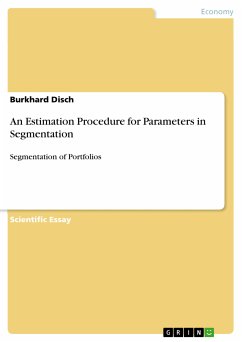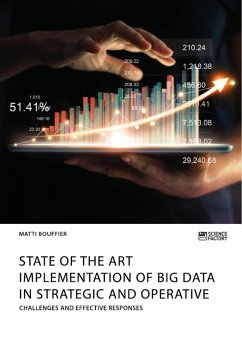Scientific Essay from the year 2009 in the subject Business economics - Banking, Stock Exchanges, Insurance, Accounting, , language: English, abstract: In practice, the actuarial valuation of a stock or an available inventory for new business target market segmentation plays a prominent role, so the formation of sub-stocks to sociological, demographic, geographic or other to be deemed as a corporate-policy relevant criteria. The main problem is to answer the question how great the stock shares for the respective segments are and what the ratios between the termination probabilities are. While estimating the termi-nation probabilities is relatively simple and - with restrictions - can be reliably estimated from external statistics, the stock distribution is highly dependent on the individual company's situ-ation. What is often known, however, is the affiliation to one segment in the case of termination, when a questionnaire, a special test or a medical examination can be carried out. If there are enough termination cases verifiable, we show that a detailed knowledge of the segmentation of the portfolio to determine the number of terminations is not necessary. The actuarial ap-proach to this is the fact that at any given time and portfolio with a number of termination cases, only the distribution of the number of termination cases in the segments is necessary to determine the individual component units, not the exact number of risks within the (sub-) segments. To calculate this, we determine a division of a given stock portfolio, as we estimate the parameters of segmentation - and calculate the portfolio shares in respect of such subdivi-sion. The parameters solves some best approximation-criteria. We show this criteria and give the solution of the approximationproblem in some special cases with examples for application. We do this in the deterministic and the stochastic case. We calculate the volume of payments in the different segments by applicating the parameters.
Bitte wählen Sie Ihr Anliegen aus.
Rechnungen
Retourenschein anfordern
Bestellstatus
Storno









